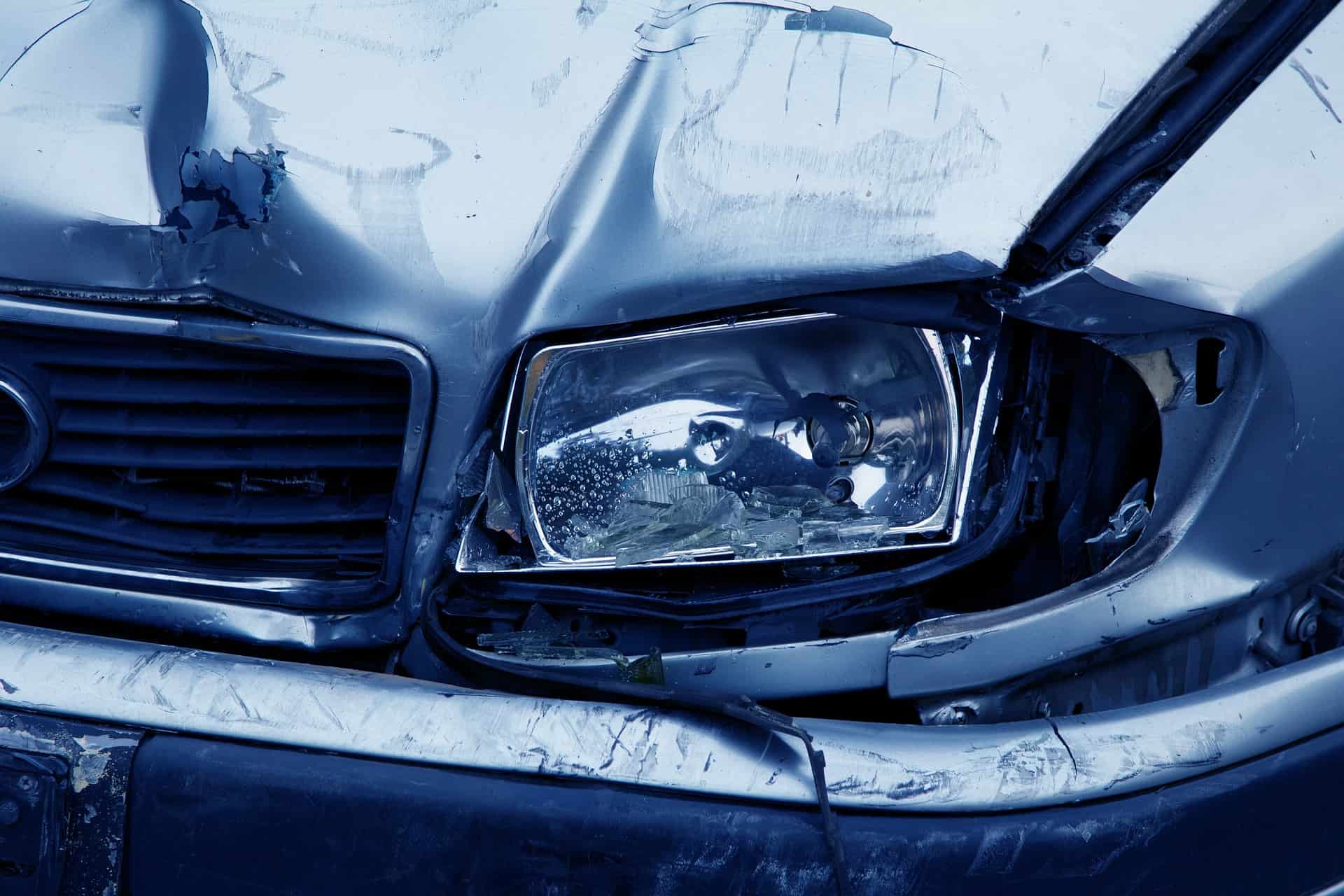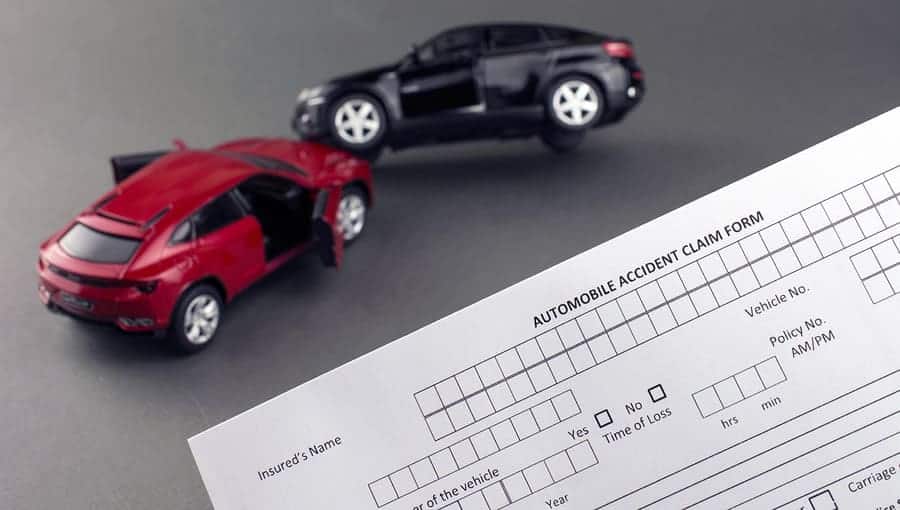You were injured in a car accident and you are unable to work. Does car insurance cover your lost wages? Here’s what you need to know.
For most people, suffering serious injuries in a car accident has two immediate financial consequences: (i) their medical bills start adding up, and (ii) they are unable to work as a result of their injuries. If your car accident injuries have put you out of work—whether for days, months, or years—it will be important for you to know how and when car insurance covers lost wages. Keep reading to find out what you need to know.
Auto Insurance Covers Lost Wages in Many Cases
Generally speaking, car insurance does cover lost wages. But the amount of coverage that is available depends on three important factors:
- Who was at fault in the accident?
- What type(s) of auto insurance coverage are available to you?
- What is the policy limit for each type of coverage?
To a certain extent, it also depends on the state in which you live. This is because some states have “no fault” insurance laws. If you live in a “no fault” state, then the good news is that you are entitled to coverage for your lost wages regardless of fault (as long as you have PIP—more on this below). But, the bad news is that it could be more difficult for you to fully recover your lost wages than it would be if you lived in a fault-based car insurance state.
Find out the maximum compensation you could receive.
Answers to 5 Common Questions about Car Insurance Coverage for Lost Wages
1. What Types of Car Insurance Cover Lost Wages?
So, let’s get into it. When it comes to the question of, “Does car insurance cover lost wages?”, the question really should be, “What types of car insurance cover lost wages?” This is because, while most people think of car insurance as an all-encompassing policy, the reality is that there are several different types of car insurance coverage. Different policies include different types of coverage and different policy limits, and some states require certain types of coverage while others do not.
There are three main types of car insurance that provide coverage for lost wages after an auto accident. These are:
- Personal Injury Protection (PIP) – Personal injury protection is a type of “no fault” insurance coverage that pays for accident-related medical expenses and lost wages. Your policy limit covers these losses jointly. So, for example, if you have a standard PIP policy limit of $10,000 and your medical bills are $9,000, you would only have $1,000 remaining to cover your lost wages. Even so, filing a PIP claim is generally easier than filing either of the other types of claims discussed below; and, if you have PIP coverage, you will generally want to use it after an accident.
- Bodily Injury Liability (BIL) – Bodily injury liability coverage pays for other drivers’ and passengers’ injuries when the insured driver is at fault in a collision. This is fault-based coverage; so, in order to secure payment you need to prove that the insured driver caused (or at least contributed to causing) your accident. BIL insurance covers all injury-related losses (including lost wages), and BIL policy limits are generally higher than PIP policy limits. If you have a BIL claim (or believe you may have a BIL claim), you will want to hire a car accident lawyer to represent you.
- Uninsured/Underinsured Motorist (UIM) – Uninsured/underinsured motorist coverage pays for your accident-related losses if you are injured by a driver who either (i) does not have insurance, or (ii) only has minimal BIL insurance that is insufficient to fully cover your lost wages and other losses. UIM insurance is optional in most states, although some states require it. If you own multiple vehicles, you may be able to “stack” your UIM coverage in order to secure additional compensation. Since UIM insurance essentially serves as a replacement or supplement to BIL insurance, proof of fault is required in order to secure coverage.
If you have medical payments (MedPay) coverage, this auto insurance does not cover your lost wages. MedPay only provides coverage for your accident-related medical bills, and coverage limits are often very low (in some cases just $1,000 or $2,000). Likewise, collision and comprehensive policies provide coverage for the damage to your vehicle in the event of an accident, and they do not provide any compensation for lost wages or other costs associated with accident-related injuries.
2. How Much Can You Recover for Your Lost Wages After a Car Accident?
In terms of the size of the car accident settlement you can recover for your lost wages, the answer depends on the policy limit(s) for the coverage(s) that are available. Setting insurance considerations aside, as the victim of a car accident that was someone else’s fault, you are entitled to compensation for all of your lost wages. There is no “cap,” and it does not matter how much you make on an hourly or yearly basis.
However, as a practical matter, in many cases accident victims will be limited to securing compensation based on the relevant coverage limit(s), as we just mentioned. Let’s consider a couple of examples:
Example #1: You Only Have a Claim for PIP
You were injured in a car accident and you live in a “no fault” state. While your injuries prevent you from working, they do not qualify you to seek fault-based compensation under your state’s law.
Let’s assume your PIP limit is $10,000 (as is often, though not always, the case). Let’s also assume that your medical bills total $9,000, and you miss two weeks of work, resulting in $2,000 in lost wages. In this example, your recovery would likely be limited to $10,000, even though your total losses are $11,000.
Example #2: You Can Recover Compensation Under PIP, BIL, and UIM
You were injured in a car accident, and you have suffered significant and permanent injuries that will prevent you from returning to your old job. The other driver has $30,000 in BIL insurance, and you have $10,000 in PIP and two cars insured with UIM coverage for $40,000. Your state’s car insurance law allows for “stacking” of UIM insurance, as we discussed above.
In this scenario, you potentially have access to $120,000 in insurance coverage. If your medical bills total $20,000, this leaves $100,000 available to cover your lost wages and other losses. When calculating your total compensation, it will be necessary to determine:
- What are your lost wages to date?
- How much income will you lose in the future as a result of your injuries?
- How much are you entitled to receive for your pain and suffering, emotional trauma, and other losses?
In this scenario, your losses could also very easily exceed the available insurance coverage—meaning that you would be able to recover the full $120,000 in coverage that is available. However, in order to secure the maximum coverage that is available, you will still need to prove your losses, and this will involve presenting your medical and employment records along with various other forms of evidence and documentation. In order to make sure your claim is not wrongfully denied (and that you do not settle for too little), you will need to hire an experienced car accident lawyer to help with your car accident claim.
3. Does Car Insurance Cover Lost Future Wages?
Yes, car insurance covers lost future wages in addition to your lost wages through the date of your settlement (or verdict, if you need to take your claim to court).
When it comes to calculating insurance coverage for lost future wages, the process is not simply as straightforward as multiplying your weekly wage by the number of weeks you are expected to be out of work in the future. First of all, you need to know how many weeks you are expected to be out of work, and this means that you need to see a doctor who specializes in diagnosing the long-term effects of traumatic injuries.
Additionally, your weekly wage will theoretically increase over time (or it would if you were able to work), and this needs to be factored in as well. Then, there are “discounting” and other calculations that need to be made in order to determine what constitutes “just compensation” for the income you will not be able to earn in the future.
In short, calculating your lost future wages is complicated, but it is also extremely important. Once again, the best way to protect yourself is to hire an experienced attorney who can accurately calculate your current and future losses on your behalf.
4. Are Lost Wages Ever “Excluded” from Car Insurance Coverage?
Yes, some car insurance policies contain “exclusions” for lost wages. Hopefully, your insurance policy does not contain one of these exclusions; but, if it does, this could pose challenges for your claim.
Typically (though not always), you must “opt out” of having your lost wages covered. Most people who opt out do so in order to reduce their monthly premiums. Some discount insurance companies offer PIP coverage with exclusions for lost wages built in as well.
5. How Do You Prove Lost Wages to Your Car Insurance Company?
Proving your lost wages is a two-step process. First, you must prove the wages you have lost to date, and then you must prove the wages you will lose in the future.
Proving your “current” lost wages is largely a matter of using your employment records to show the days you missed from work. If you receive benefits in addition to a wage or salary, you will need to make sure that your insurance payout includes adequate compensation for your lost benefits as well. With regard to proving your “future” lost wages (also known as lost earning capacity), as we mentioned above, this is a more-complicated process that requires the help of an experienced attorney.
Generally speaking, the documentation you will need in order to prove your lost wages for purposes of recovering car accident compensation include:
- Your medical records (to show that your injuries prevent you from working)
- Your recent paystubs and/or W-2 (or 1099)
- Documentation from your employer of your compensation rate and benefits
- An expert medical opinion regarding the long-term disabling effects of your injuries (if any)
- An expert financial opinion regarding how much income you will lose as a result of being unable to work (if you need to seek compensation for lost earning capacity)

5 Tips for Recovering Your Lost Wages After a Car Accident
This is a lot of information; and, as you can see, there is a lot that goes into recovering your lost wages after a car accident. Here are five tips you can use to help make sure you receive insurance coverage for your lost wages:
1. Seek Medical Treatment and Follow Your Doctor’s Advice
After a car accident, your first priority should always be to see a doctor for diagnosis and treatment; and, once your doctor provides a treatment plan, you need to follow through. Attend all of your appointments and follow all of your doctor’s advice. If you don’t the insurance companies may claim that your inability to work is a result of your own failure to get better as quickly as possible.
2. Do Not Return to Work Too Soon
If your doctor advises you to rest, then you need to rest. Returning to work too soon is one of the most-common mistakes that leads to insurance claim denials. If you need short-term financial help, there are options available (your attorney can provide you with some recommendations), but you cannot afford to jeopardize your insurance claim.
3. Keep Track of the Days You Miss from Work
In addition to the types of documentation we listed above, it will also be helpful for you to keep a running log of the days you miss from work. Write down the reason why you miss each day (i.e. pain, attending a doctor’s appointment, or following your doctor’s advice), and be prepared to share your log with your attorney.
4. Resist the Temptation to Settle Your Insurance Claim
If you face financial strain as a result of being unable to work, you need to resist the temptation to settle your car accident claim. Again, your attorney can help you consider your options (such as obtaining pre-settlement funding), and you do not want to make a short-term decision that negatively impacts your finances for years to come.
5. Get Help from a Local Car Accident Lawyer
Finally, the absolute best way to make sure your lost wages are covered by car insurance is to hire an experienced attorney to represent you. Your attorney can tell you what you need to do, tell you what mistakes you need to avoid, and take the necessary steps to secure a favorable insurance settlement on your behalf.


